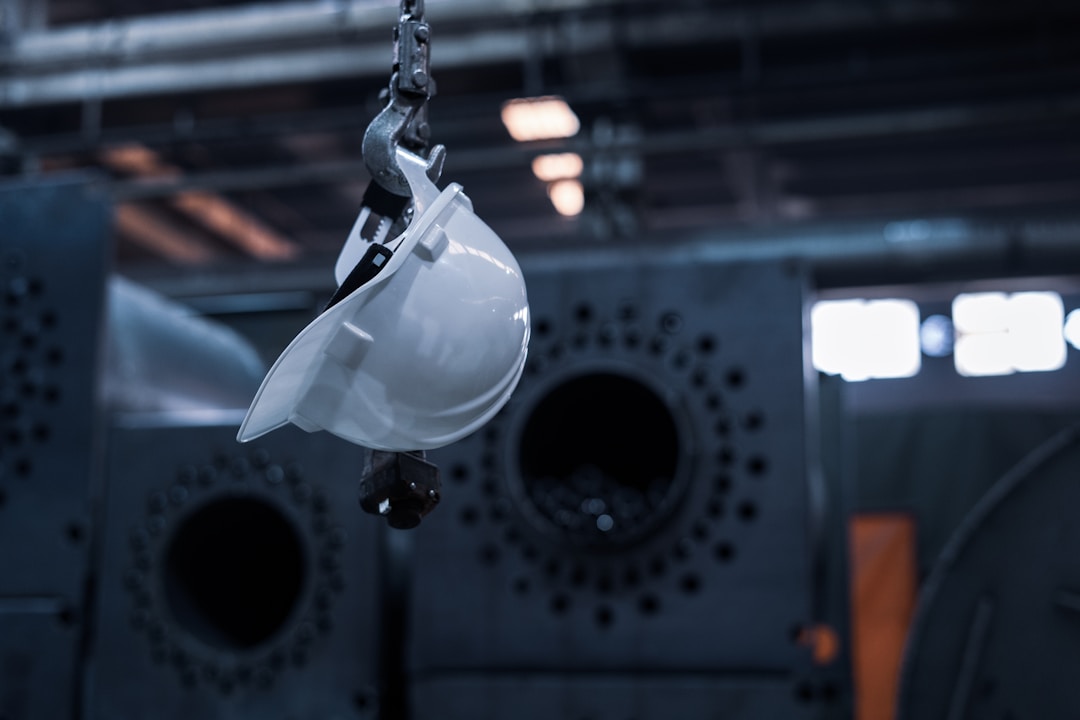In a world where environmental concerns and resource efficiency have become central to industrialization, businesses seek cleaner and more sustainable ways to operate. As production intensifies in various sectors, factories grapple with balancing high-quality output, cost management, and the need for eco-friendly solutions. One ingenious answer to this difficulty is the use of industrial reverse osmosis systems. In this article, we will explore why your factory needs such a solution, delving into the array of benefits these systems bring to the operational table. Keep reading to learn more.
Understanding Reverse Osmosis
How does reverse osmosis work, you might ask? Reverse osmosis (RO) is a process where pressure is used to drive a solution through a membrane, retaining the solute on one side and allowing the pure solvent to pass to the other. This technology has been widely used for purifying water, removing salts and other substances to produce water that is safe for consumption or industrial use.
Industrial reverse osmosis systems apply the principle of reverse osmosis on a larger scale to meet the water purification needs of factories and industries. The process involves using a high-pressure pump to increase the pressure on the salt side of the RO and force the water across the semi-permeable RO membrane, leaving almost all dissolved salts behind in the reject stream.
The pressure required for this process varies depending on the salt concentration in the feed water. Higher salt concentrations typically require more pressure to overcome the osmotic pressure and effectively separate the salt from the water. Therefore, the RO system’s efficiency greatly depends on accurately determining the salt concentration of the incoming water and adjusting the pressure accordingly.
Through this high-pressure pumping process, reverse osmosis effectively removes a wide range of contaminants. The result is fresh and clean water that is suitable for various applications such as drinking, irrigation, industrial use, and more. Reverse osmosis has become a popular and reliable method for water treatment due to its efficiency, effectiveness, and ability to provide safe and high-quality water.
In addition to water purification, reverse osmosis is crucial in ensuring that factories maximize their productivity by using water efficiently. A reverse osmosis system can deliver economic and environmental benefits for your factory.
Improving Operational Efficiency
One of the key advantages of installing a reverse osmosis system is the notable improvement in operational efficiency. Water is a critical resource in many factories, especially those in the food and beverage sector. Whether it’s for cleaning equipment, cooking, or processing ingredients, water quality can significantly impact the final product’s quality.
By using an industrial RO system, factories can ensure a consistent supply of high-quality water. This can reduce equipment downtime due to less contamination and build-up, improving overall operational efficiency. Contaminants and mineral build-up can cause significant damage to machinery and equipment. By removing these impurities from the water supply, factories can minimize the risk of corrosion and scaling that can clog pipes, valves, and other crucial components. This leads to less frequent maintenance and repairs, improving operational efficiency and reducing production interruptions.
In addition to equipment protection, an industrial RO system ensures consistent water quality, which is vital for maintaining the integrity of the products being manufactured. Contaminated water can affect the quality and performance of end products, leading to customer dissatisfaction and potential financial losses. An industrial RO system helps ensure product reliability and meet industry standards by consistently providing high-quality water.
Moreover, reverse osmosis systems can help factories reduce the amount of waste they generate. Since RO systems can effectively separate and concentrate waste products, businesses find managing and disposing of waste easier, further enhancing their operational efficiency.
Safeguarding Worker Health

Worker health and safety is an essential consideration in any factory setting. Access to clean, safe water significantly impacts employee well-being, whether it’s for drinking, cleaning, or sanitation purposes.
Industrial reverse osmosis systems can help ensure the provision of clean water, decreasing the chances of waterborne diseases in the workplace. High-quality water can also translate to cleaner facilities, providing a healthier workspace for employees. Reverse osmosis systems can help factories comply with safety regulations by filtering out harmful substances, further securing worker health, and minimizing legal and financial risks.
Preserving the Environment
In today’s era of increased environmental awareness, businesses face increasing pressure to adopt eco-friendly practices. RO systems can play a major role by efficiently treating wastewater before releasing it into the environment. Sustainable water management through reverse osmosis can reduce a factory’s environmental footprint by minimizing water wastage and preventing the release of harmful substances into local water sources.
Therefore, factories that employ industrial reverse osmosis systems contribute to environmental preservation and build a positive reputation for responsible business practices, gaining the goodwill of customers, stakeholders, and the wider community.
Cost Savings
Considering the long-term economic benefits when investing in an industrial reverse osmosis system is vital. While the initial setup costs might appear sizeable, the return on investment over time can be considerable.
By ensuring an unrestricted supply of high-quality water, these systems can significantly reduce a factory’s reliance on purchased water, yielding substantial cost savings. Additionally, factories can further save on equipment maintenance and repair costs, as clean water can minimize wear and tear on machinery.
In a broader economic sense, businesses can optimize production costs and improve their profit margins by minimizing waste, improving efficiency, and reducing the chance of infractions with environmental and safety regulations.
Targets a Variety of Contaminants
Industrial reverse osmosis systems can filter out a wide range of contaminants that may be detrimental to your factory operations and the environment. These include particulates, bacteria and other microorganisms, dissolved salts, heavy metals, and other pollutants.
One of the main benefits of an industrial RO system is its ability to filter out particulates, bacteria, and other microorganisms. These microscopic particles and organisms can easily contaminate water sources, leading to equipment corrosion, clogging of pipes, and decreased overall productivity. By eliminating these impurities, an RO system ensures that water used in industrial processes remains clean and free from these harmful substances.
In addition to microbiological factors, dissolved salts, heavy metals, and other pollutants pose a significant threat to factory operations and the environment. High concentrations of salts and pollutants can cause equipment scaling, fouling, and corrosion, leading to decreased efficiency and increased operational costs. Industrial RO systems have the capability to remove these dissolved salts and heavy metals, preventing the negative impacts they can have on equipment and the environment.
As such, these systems are a comprehensive solution to water purification needs, capable of providing a high-quality water supply even in regions where the local water sources are heavily contaminated.
Choosing the Right System

While recognizing the necessity of an industrial reverse osmosis system is a step in the right direction, it’s equally important to carefully consider what type of system best suits your specific factory needs. Factors such as your factory’s water usage, contaminant profile of the water supply, and operational budget should guide your system selection.
Additionally, it’s advisable to engage a proven firm in the field of water treatment and management to assist in assessing your unique requirements and providing a tailored solution. They will guide you through the options available, their features, the installation process, and operational education to ensure you get the most out of your investment.
With the right system and knowledgeable partner, your factory can fully leverage the enormous benefits of industrial reverse osmosis.
Implementing an industrial RO system can offer significant benefits to factories regarding operational efficiency, worker health, environmental preservation, cost savings, and the capability to filter a wide range of contaminants. Therefore, deciding to invest in such a system is not just a wise business move but also a commitment to sustainable operations and responsible industrial practice.



